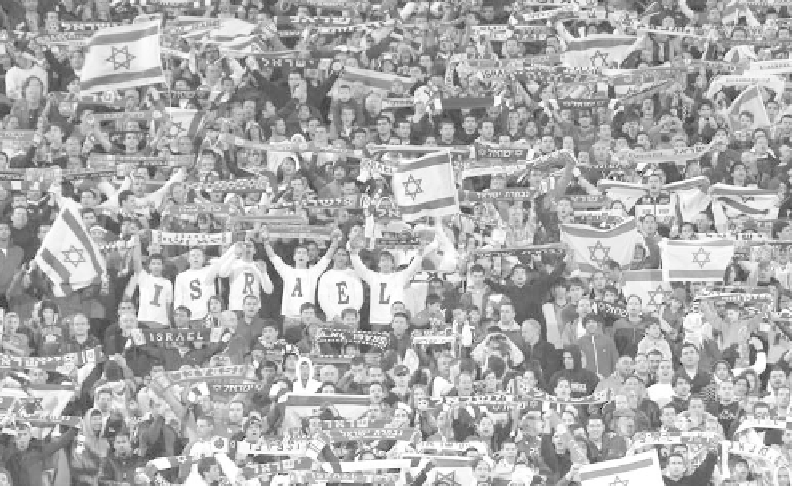Travel Reference
In-Depth Information
Soccer fans cheer the national team at a World Cup qualifying game in Ramat Gan Stadium, March 2009.
(Getty Images / Image Bank.)
joking references that sometimes carry a nasty edge in slogans shouted at games. Perhaps only
Beitar Jerusalem is still seen by its supporters as having ideological signifi cance. Otherwise, fan
preferences follow geographic rather than political lines. Israeli Arabs are fully integrated into
the league system. As in other countries, the televising of games draws bigger audiences but
reduces the number of spectators who attend games.
Generally, the leading soccer teams over the years have been Hapoel Tel Aviv, Beitar Jeru-
salem, Maccabi Haifa, and Maccabi Tel Aviv, although others have done well and won league
championships. The main team representing an Arab town is Bnei Sakhin — a team has both
Jewish and Arab players. In 2004, it won a national championship. Each team is allowed to
have up to fi ve foreign players. Aside from the top Toto League, there are many other profes-
sional and semiprofessional leagues at lower levels.
Sometimes politics intervenes in sports, most notably the Arab-Iranian boycott that has
resulted in Israel playing internationally in European rather than in Middle Eastern or Asian
leagues. Israel was one of the founders of the Asian Football Confederation (AFC), but when
Arab states began to join the AFC, they pressed for Israel's expulsion, which happened in 1976.
Thereafter, Israel tried to join the European Football League (UEFA), but Communist bloc
countries prevented this until 1991, after the disintegration of the Soviet bloc.
In international competitions, athletes and teams that refuse to recognize Israel refuse to
play and at times have forfeited games as a result. Places refusing to admit Israeli players or
teams may lose the opportunity to host international competitions. And at times foreign teams
cancel visits to Israel because of security concerns.

